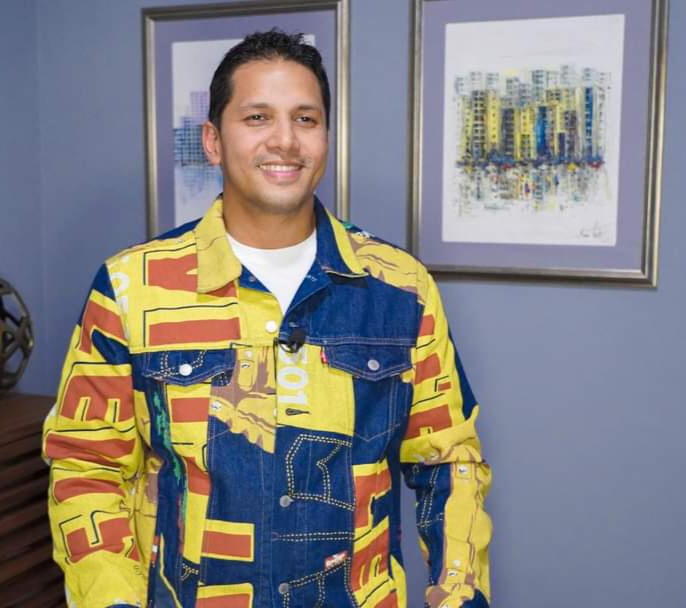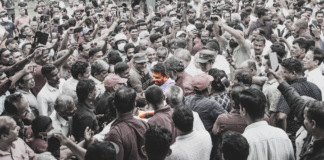Ethnic and religious unrest have plagued independent Sri Lanka for years, as any average Sri Lankan knows. It has been festering for decades due to the deliberate failure of governments to exercise their power to resolve those issues for good. There are inherent difficulties in managing the affairs of a multi-religious and multi-ethnic society. However, it is the prime responsibility of a government to devise a formula that could create a satisfactory balance in handling ethnic and religious tensions and disturbances in a manner acceptable to all segments of society.
Nevertheless, it is strange to observe that such disturbances are quite frequent and orchestrated by the political authorities themselves for their own advantage.
Buddhist monks donning various political hues have been promoting the Sinhala Buddhist cause by undertaking archaeological explorations in sensitive areas in the Tamil-dominated North and East, giving rise to a further escalation of tensions after three decades of an exhaustive conflict.
The north and east are predominantly Tamil-majority areas with a sizeable population of Sinhalese and Muslims. This has caused tension between the various communities living in the north and east, as Buddhist monks are seen as trying to impose Sinhala Buddhist culture on the people of the area. This has exacerbated existing hostilities between ethnic groups, which has led to further conflicts. The other day, President Ranil Wickremesinghe directed the archaeological authorities to suspend excavations in the north and east with private funding. ‘There should be a plan for such archaeological excavations, and they should be carried out only with budgetary allocation’, the President said. He also said that research should be carried out in the Dimbulagala area and near the Malwatu Oya, where the Sinhala culture originated.
In any case, there has been a wave of religious discord over the past two weeks throughout the country.
The Sinhala Buddhist extremes are out on the streets, baying for the blood of those who defamed Buddhism. This is largely due to the controversial use of Buddhism as a tool for political power and social control. Extremist groups exploit the religious sentiments of the majority population to gain power and silence their opponents.
Pastor Jerome Fernando was at the centre of the controversy at the beginning. His sermons were seen as religious indoctrination. This led to increased scrutiny of extremist groups and their activities, which ultimately resulted in the government curbing their influence.
The controversy started with Pastor Jerome Fernando’s allegedly contentious and provocative statements. These statements are considered detrimental to major faiths in Sri Lanka, including Buddhism, Hinduism, Islam, and of course, Christianity.
Jerome left the country on time before being apprehended by the long arm of the law. He sent an apology, expressing his regrets over his utterances but saying he had not changed his stance. He also said it was his right to believe what he claimed. Jerome has other connections to the outside world. Ubert Angel is believed to be his patron.
Ubert Angel was appointed by President Mnangagwa to be Zimbabwe’s ambassador-at-large to Europe and the Americas. However, he is being investigated for money laundering. The UK-based preacher has reportedly been stripped of his diplomatic status.
In Sri Lanka, too, there have been no audit reports concerning various self-proclaimed preachers, including Pastor Jerome Fernando.
Sri Lankans have raised questions about the “Miracle Dome” in Naikanda near the Katunayake Airport. The land is said to have been owned by the Airports and Aviation Authority. It was given to Gratian Gunawardene for a meagre sum. At the same time, people are eager to find out how then President Mahinda Rajapaksa, along with his family members, appeared for a photograph with Ubert Angel and Jerome Fernando and if it was purely official.
However, the former President was quick to condemn Pastor Jerome Fernando’s utterances to maintain his distinctly Sinhala Buddhist identity. He usurped power twice by posing as a true Buddhist patriot, and people are aware of the tricks he was up to. He grabbed power, hoodwinking the unsuspecting people.
People remember how power-hungry political elements worked towards creating anti-Muslim sentiments along with Buddhist clergy with a huge melodrama that was intended to appeal to the emotions of ordinary people who take a very serious note of the threat coming from outside to the existence of the Sinhala community.
Accordingly, the whole drama centred on a medical practitioner in Kurunegala, Dr. Shafi Shabdeen. The allegation was that he performed sterilisation surgeries on a large number of Sinhala women during caesarean operations. This was while he served as the senior house officer in the Obstetrics and Gynaecology department of the Kurunegala teaching hospital. The so-called patriots targeted the Muslim community on charges of causing various types of tactful manoeuvring by introducing sterilisation pills at their food outlets and so on. It was a virtual trial by the media and the gullible people passed judgement since by that time anti-Muslim sentiments had reached fever pitch owing to the 2019 Easter Sunday attack on the Catholic churches and some hotels.
Anybody would realise that cunning politicians exploit any situation to their advantage, and what is happening now is something similar to the 2019 anti-Muslim campaign launched by garrulous gossip mongers employed by politicians to create havoc in the country, especially against Muslims, to garner support on the pretence of the Sinhala Buddhist cause. This happened to be the underlying objective during the 2019 elections. By believing politicians and without reasoning, people have learned many bitter lessons.
Sri Lanka is primarily a Buddhist country, with Buddhists dominating its political echelons. There are pious and innocent Buddhists who practise the philosophical ideals of the doctrine with veneration. They don’t get emotionally moved since they are true practitioners of Buddhism’s philosophical aspect. Others, however, take Buddhism at face value and view it from a commercial perspective. Some think religion is life, and as a Sinhalese, you should be a Buddhist. There are various factions in cult-like operations that create mayhem every now and then for political gain.
It was Natasha Edirisuriya who caught the extremist elements’ attention after Jerome. Yet Natasha played into their hands and was an easy catch for law enforcement officers. She was arrested while boarding a flight bound for Malaysia en route to Singapore. Natasha was remanded until June 7th after the police submitted a dossier against her before the magistrate. According to the police, she will be charged under the International Covenant for Civil and Political Rights (ICCPR) Act for making disrespectful comments against Buddhist culture. But what then of Natasha’s rights under the ICCPR and constitutional guarantees of freedom of expression?
Amnesty International voiced concern over the arrest and the police plan to charge her under the ICCPR Act.
Amnesty International said that the ICCPR Act should not interfere with constitutional freedom of expression. There are questions about whether Natasha’s utterances fall within the ambit of defaming a religion and whether it damaged Buddhist beliefs in general. Arguments for and against it can be made.
Extremist elements are also up in arms against giving undue publicity to lawyers who appear in court on behalf of the suspect, rendering them targets of hooligans instigated by extremist religious elements trying to gain political mileage. Such hostile reactions are not only detrimental to the criminal justice system but also to the country’s security. The government needs to take stern action against such elements to ensure citizens’ safety and preserve the rule of law. Any citizen should have the freedom to obtain legal representation in court depending on their ability and trust in the lawyers, and the lawyers so retained should be able to perform their duty without any hindrance in discharging their lawful duty.
Former President Chandrika Kuamaratunga makes a valid point by asking, “What about Buddhist monks and others who insult Islam and other religious beliefs, burning churches, etc.?” They are much worse than what Natasha has said. Mrs. Kumaratunga tweeted “Indeed, Buddhism must receive the utmost respect, but all the other religions must receive it in equal measure”.
Meanwhile Bruno Divakara, has been arrested and remanded for promoting Natasha’s remarks over his Youtube channel, SLV-LOG. Just before this, another Buddhist monk, Rajangane Saddharatana Thero, was arrested on similar charges of promoting religious discord, but when produced before the Magistrate, the CID brought in a financial misappropriation case against him, saying that the monk had misappropriated nearly eighty million rupees donated by a philanthropist in the United Kingdom to build his temple. All of them have been remanded until the 7th of June.
Many people think politics is behind all these cases because of the selective manner in which enforcement takes place. Soon after Natasha’s incident, social media was awash with clips of Dilith Jayaweera, a political hobnob and media moghul credited with Gotabaya Rajapaksha’s presidential win, purportedly insulting the Buddha. Whether the CID will arrest Jayaweera is not even a guess. Natasha, more than Pastor Jerome who is also alleged to be under Rajapaksa political patronage, are the tip of the iceberg. These cases are likely being used to silence critics and opponents of the current government. Remanding them until the 7th of June is an attempt to keep these individuals out of the public eye while the government works to discredit them.
There should be an end to this kind of low-end politics. It is a stark reminder that people are disgusted and fed up with this kind of political drama unfolding with politicians’ blessings. In fact President Ranil Wickrememsinghe addressing the National Law Conference 2023-2024 said that the majority of the people, including many young people, have lost faith in elections and politics.
Addressing the conference in Nuwara Eliya, the president said that even if all the political parties unite, none of them has a 50% vote base at the moment.
“That is why all parties should unite to resurrect the country from the economic crisis”, the president said..





